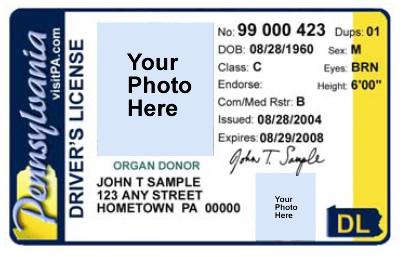
CONTACTS:
Timothy Rusch: (917) 399-0236, tim@fitzgibbonmedia.com
Rachel Tardiff: (202) 746-1507, rachel@fitzgibbonmedia.com
New York—Today, a new set of data was released proving that Pennsylvania’s selective voter ID law places excessive burdens on low income, elderly, minority and disabled voters. These findings come just days before Commonwealth Court of Pennsylvania is expected to rule on Pennsylvania’s selective voter ID.
Last week, the Pennsylvania Supreme Court asked the lower court to determine whether there is undue burden on voters to obtain forms of ID mandated by the new law. According to the Supreme Court’s ruling, “if the Commonwealth Court is not still convinced…that there will be no voter disenfranchisement arising out of the Commonwealth’s implementation of a voter identification requirement…that court is obliged to enter a preliminary injunction.”
“Pennsylvania’s voting restrictions threaten to disenfranchise hundreds of thousands of voters statewide, contrary to what Pennsylvania officials have said—that selective voter ID isn’t a burden,” said Rashad Robinson, Executive Director of ColorOfChange. “In fact, Pennsylvania House Majority Leader Mike Turzai audaciously praised Pennsylvania’s selective voter ID law in March when he said it would enable Mitt Romney to win Pennsylvania.”
ColorOfChange.org, in a partnership with SEIU, has been working to find out exactly who the controversial selective voter ID law was impacting, and how it was being implemented. Through reports provided by ColorOfChange members in Pennsylvania and interviews SEIU conducted on-site with 75 voters attempting to obtain identification at 45 of 71 Pennsylvania Department of Transportation (PennDOT) offices across the state, and 45 PennDOT officials, the groups found that the burden is far from “minimal,” as described earlier this month by PA Chief Deputy Attorney John Knorr.
Instead, the new data shows with certainty that specific demographics of voters in Pennsylvania—those with low-incomes, people of color, the infirm, people with disabilities, and the elderly—experience hardship and face excessive challenges when obtaining selective voter ID. They also found that there was confusion among PennDOT staff as to how to implement the law and how to communicate with applicants about it. Those reported to investigators include:
- Elderly and disabled voters having to return to the PennDOT multiple times after long waits—four hours or more—and then being told to come back
- Sick, elderly and disabled voters forgoing food or medications because of lack of timely or available restroom facilities
- Elderly, disabled and poor voters being misdirected to different locations or lines for “voter ID” by PennDOT officials
- Lower-income voters being asked to pay a fee for voter ID when the law stipulates that the ID should be provided at no charge
- PennDOT officials admitting that, while they had training, the law is confusing as everything keeps changing
- PennDOT offices were observed not regularly offering voter registration services to license applicants, as required under the National Voter Registration Act of 1993
“The hardships and struggle with Pennsylvania’s new voting law proves one thing: selective voter ID requirements block the country’s most marginalized citizens from voting. People of color, disabled Americans, and the people hardest hit by the economy—it’s disenfranchisement, and silencing these voices is wrong and un-American,” said Robinson. “ColorOfChange and our allies will continue to raise the voices of those impacted by this law, while urging the public to speak out and media to cover their stories.”
Throughout 2012, ColorOfChange has been working to raise the voices of everyday people against voter suppression, from mobilizing 65,000 petitions and hundreds of phone calls against Ohio’s Secretary of State John Husted’s support for vote suppression laws to exposing the American Legislative Exchange Council (ALEC) for their role in promoting selective voter ID (and prompting dozens of major US corporations to pull ALEC support because of it), and working tirelessly to help voters navigate the patchwork of voter laws and to get their ID and register through vote.colorofchange.org
Members of the press: To obtain a summary of findings and stories gathered at PennDOT offices, or to schedule an interview with Rashad Robinson, please see contact information.
# # #
With more than 800,000 members, ColorOfChange.org is the nation’s largest Black online civil rights organization.
